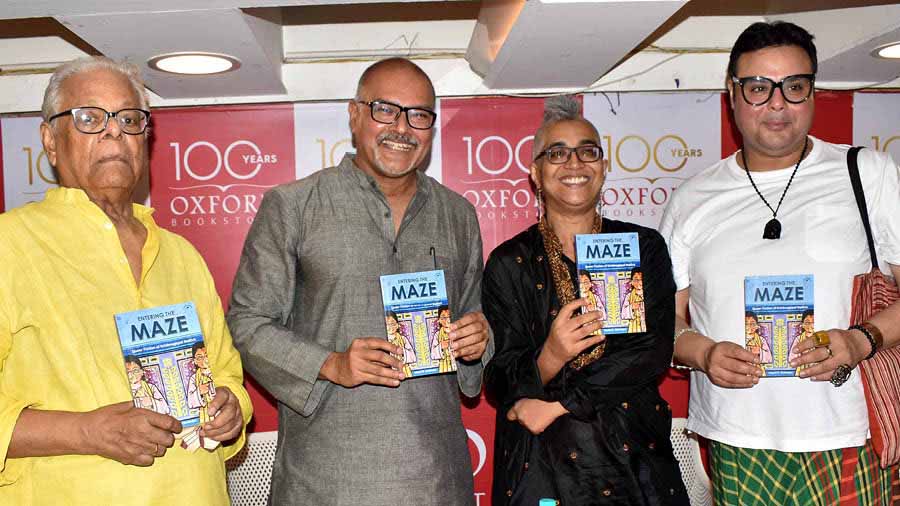“Why is it that on the one hand, we talk about pride and on the other hand, we don’t have enough narratives about the joy of being queer?” asked author and academic Niladri R. Chatterjee, as he discussed his book, Entering the Maze: The Queer Fiction of Krishnagopal Mallick. Published by Niyogi Books, it is a translation of the works by Bengali writer, Krishnagopal Mallick. Chatterjee delved into the nitty-gritties of writing the book with fellow academic Rimi B. Chatterjee, multidisciplinary artiste Sujoy Prasad Chatterjee and theatre artiste Chapal Bhaduri, attending the event at the Oxford Bookstore.
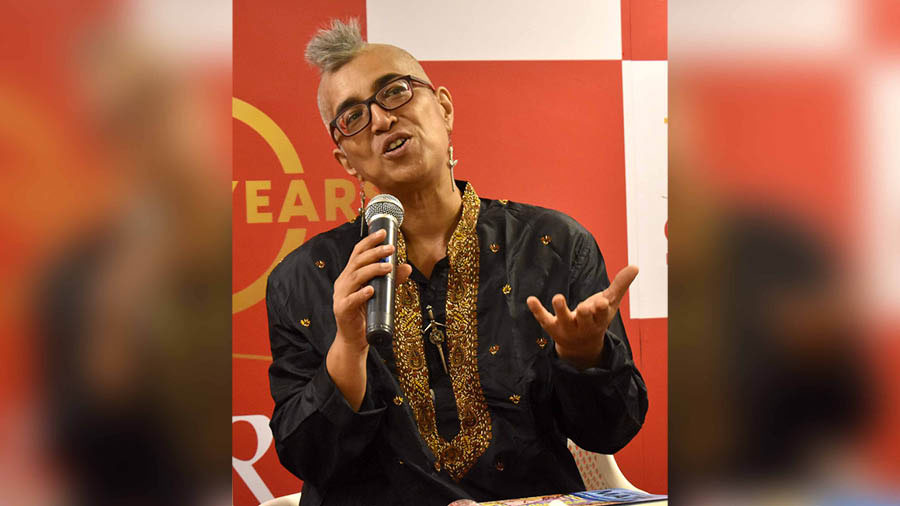
academic Rimi B. Chatterjee at the event
Truly, queer literature is often mired by the unhappiness and poignancy of the experience of being queer in a particularly hostile world, but Krishnagopal Mallick’s work abounds in expressing the joys of being a homosexual. For Rimi B. Chatterjee, “joie de vivre” is the most unmistakable feature of Mallick’s writing, as he never sought to preach, but always depicted the beauty of existing as a homosexual and negotiating the terrains of gender through his writing.
Discovering an author
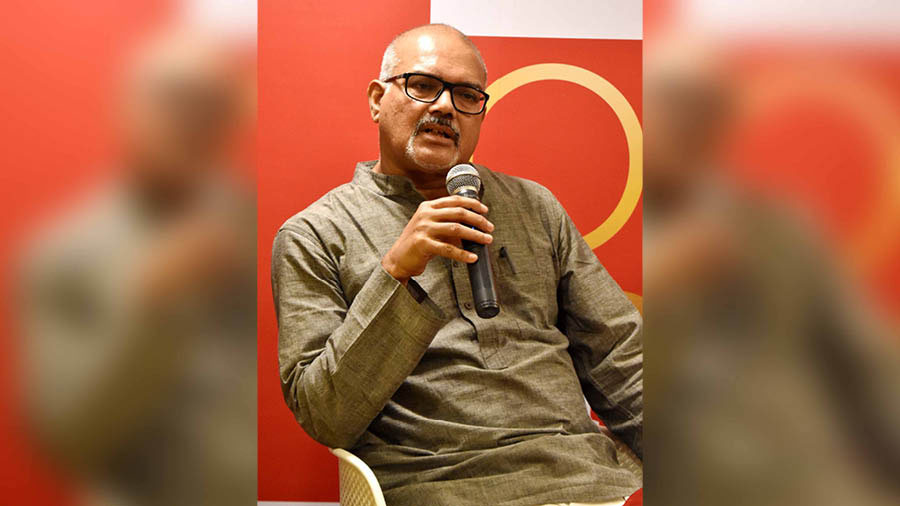
Author Niladri R. Chatterjee discusses his book at the event
So how did Chatterjee come across Mallick’s works? “One of the perks of being an academic is that very often, books are thrust upon you by your students and friends who expect that you would have read the said books. Since I am a student of gender studies, my friend Sayantan Mitra asked if I have read Krishnagopal Mallick, and I hadn’t. But I am so thankful he asked, because when I started reading Mallick’s works, I was struck by the happiness that his works radiated,” explained the author.
The other reason why Krishnagopal Mallick appealed to Chatterjee was how unapologetically he loved north Kolkata. “Krishnagopal Mallick is synonymous with College Street, Surya Sen Street, and the nooks and crannies of north Kolkata. There is a great deal of candour, a great deal of frankness and just happiness in his works” added Chatterjee.
Rimi B. Chatterjee pointed out that Mallick “is guilt-free about what he does”. She added, “I think Krishnagopal Mallick realised that Bengali society is very homo-social. We live in a world, where genders occupy different spaces and within those spaces you can behave any way you like, provided you don’t cross that electric fence. He had figured out that if he stayed in the male-coded spaces, he was safe. In the book, he takes great care in describing the geographical locations where he acts out his gayness and in those areas, he is a total queen!”
‘Looking at myself in the mirror…’
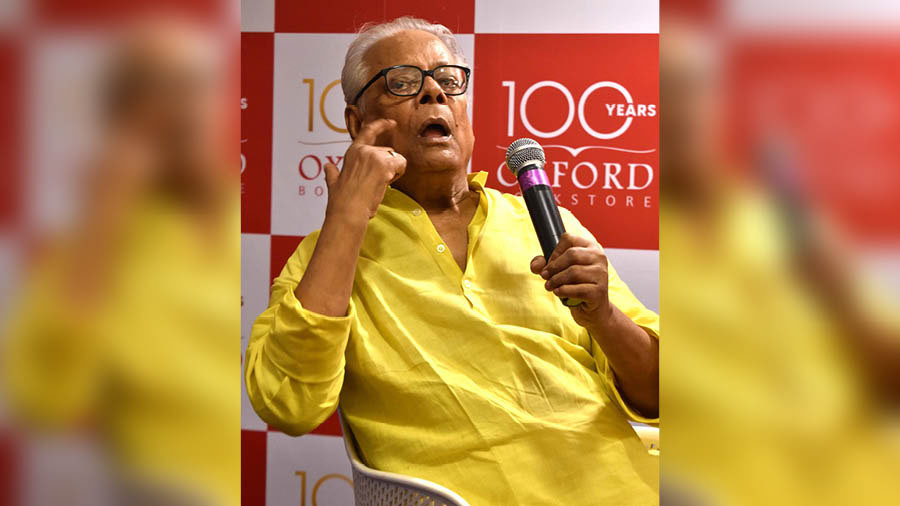
Theatre artiste Chapal Bhaduri
The legendary theatre artiste Chapal Bhaduri, who is merely three years younger than Mallick, never met him. When asked what he imagines an encounter between himself and Mallick would have been like, Bhaduri promptly replied, “It would have been like looking at myself in the mirror”.
Talking about his life, Bhaduri noted that he could only study till the eighth standard before the struggle of survival pushed him to a life on the stage. “I had to start being a female impersonator to earn a living in 1955. And since then, through several ups and downs, hardships, and insults, I have had to live my life. But I have never cared about them because I stand by what I have done.”
But could he ever express his sexuality? “I believe everyone has the right to their own identity and uniqueness. There shouldn’t be a problem if a man wants to love another man or a woman wants to love another woman. But in my life, I could never express my sexuality because I was busy with my work. The attraction that I had towards others couldn’t be expressed and I could only express it through my makeup. I was very good with makeup and at making myself look like the character,” he elaborated.
Lost in translation
“It was difficult to translate the book because so much of Bangla cannot be translated. I have had to invent some different registers of the Shakespearean language to express all of it. But Krishnagopal is unencumbered by the history of the queer movement and because of that, his Bengali becomes much lighter. The moment I started writing in English, I realised that all of that history has to be accounted for,” remarked Chatterjee, when asked about his experience of translating the book. But other than that, Mallick’s family was extremely cooperative in helping him procure the translation rights.
“Mallick’s original story was published in 1993 and his other works came out in little magazines as well. None of these little magazines are in print now. I am hoping that Entering the Maze will ignite public interest and his original works will be published again,” concluded Chatterjee.
The event came to a close with a Q&A session with the audience and with Sujoy Prasod Chatterjee reading out chapters from the book. Sujoy remarked that it was incredibly fascinating how Mallick discovered his sexuality during his life and never made a hue and cry about it.
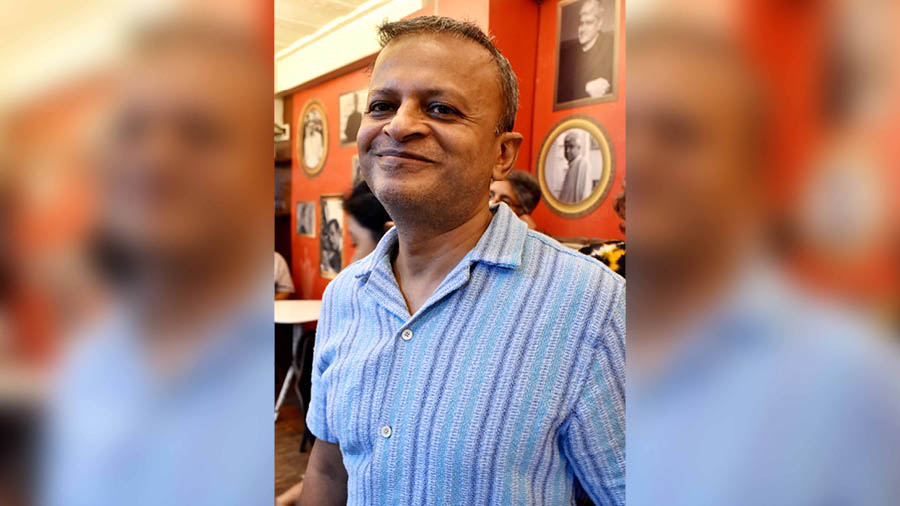
Author and journalist Sandip Roy thanked the author for bringing Mallick out to the larger audience
Author and journalist, Sandip Roy, who was present in the audience, noted that he had never heard of Mallick before the book was published. “Kudos to Niladri for bringing him out to the larger audience. There are many ways of imagining queerness and we can take cues from people right among us instead of looking for prototypes in other cities or countries. There are different kinds of queerness right here in our backyard. The more we are able to bring out these hidden narratives, the richer we all will be,” he said, before signing off.
